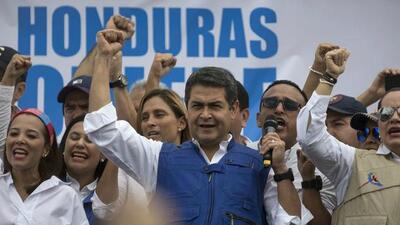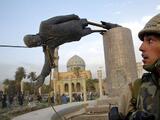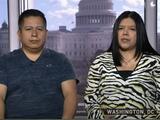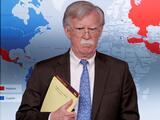Can Honduras avoid a third political crisis in less than 10 years?

On Saturday, Juan Orlando Hernandez will be sworn in for a second time as President of Honduras.
While inauguration days are often times for celebration and hope for a better future, Hernandez’ inauguration will likely take place amidst tear gas fumes and showers of rocks as Honduran security forces battle protesters in the middle of a continuing political crisis.
Very few people beyond official circles and his supporters will be celebrating what most Hondurans consider to be a highly flawed and perhaps fraudulent election.
After this controversial vote -- in which observers from the Organization of American States said they could not certify a winner -- Honduras’ agenda is daunting, and the need for national reconciliation great.
The starting point for a better future in what is one of the poorest and most violent countries in the hemisphere begins with the de-politicization of the country’s electoral system, and guaranteeing political independence and greater technical competency for the country’s Attorney General (Fiscal General) and Supreme Court. Without these steps, efforts to stamp out corruption will be impossible and political instability, democratic weakness, and insecurity will return again and again.
Sadly, a case in point is the decree adopted by the Honduras Congress on January 18 that would open investigations into public expenditures over the past decade. The OAS anti-corruption mission (MACCIH) has condemned this decree as and Impunity Pact (Pacto de Impunidad) and an attempt to stop independent investigations into government corruption.
It is vitally important for both Mexico and the United States to support democratic reforms and greater stability in Honduras. If Honduras’ neighbors fail to do so, they will suffer the consequences of greater migration, instability, and potential state failure in their immediate neighborhood. Now that both the United States and Mexico have effectively recognized Hernandez’ reelection, they need to take immediate steps to ensure that he begins a process of reform.
Today’s crisis is firmly rooted in the 2009 coup d’état that led Honduras’ army to overthrow leftist populist President Mel Zelaya, and deposit him, in his pajamas, in Costa Rica. That coup was a result of Zelaya’s attempt to hold a referendum on presidential reelection -- a controversial topic which was and continues to be forbidden by the country’s constitution.
Zelaya's push for re-election was seen by his opponents as an effort to perpetuate himself in power, with some fearing a Venezuela-style regime akin to that of the late caudillo president, Hugo Chavez. Mel’s ambitions were thwarted by the country’s political and economic elite which united against him, and eventually pressed the military to depose him.
The post-coup period threw the country into extreme crisis. Local street gangs and international criminal groups made major inroads, making alliances with local and national politicians, within the justice system, police and the military.
Honduras became one of the key transshipment points for international cocaine trafficking. State control of vast areas of the country – especially along Honduras’ northern coast and border regions with Guatemala- where practically not existent. Honduras led the world in homicides in 2011 and 2012. San Pedro Sula, the country’s business capital, and surrounding areas became the deadliest urban area in the world, even exceeding Ciudad Juarez, Mexico’s murder capital.
As homicides and corruption soared and impunity ruled, Honduras entered a period of almost constant democratic crisis. From his perch as president of the Honduran legislature, JOH, as Hernandez is universally known, began his march to power.
Hernandez orchestrated the removal of four out of five magistrates of the constitutional chamber of country’s Supreme Court. Hernandez’ new court later ruled that he could, in fact, run for re-election, despite clear prohibitions against it in the Constitution.
Hernandez avoided efforts to reform Honduras’s electoral system. He made common cause with rival Zelaya, precisely because both men harbor great political ambitions and want to continue wielding power. They helped ensure that the Tribunal Supremo Electoral (TSE) remained where the National party appointed two magistrates, and the Liberal party and Zelaya’s Libre party each appointed one.
Conditions continued to deteriorate. An explosive 2013 corruption scandal provided evidence that government ministers and politicians had syphoned hundreds of millions of dollars from Honduras’ social security funds, enriching the politically connected even as dozens of ordinary Hondurans died from lack of medicine and proper treatment. When it became known that some money from the social security scandal ended up in JOH’s presidential campaign, thousands of ordinary Hondurans took to the streets to protest.
It is little wonder then that the most recent election has been highly questioned by international observers and is believed to be fraudulent by millions of Hondurans. A much-discredited electoral authority has declared Hernandez the winner, but the Honduran people are still deeply polarized and the future looks bleak for the country.



